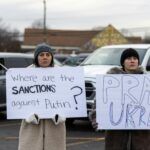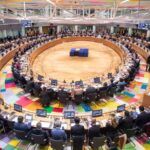00The European Commission welcomes the Council’s decision to lift EU economic sanctions on Syria. The legal acts — jointly proposed by the High Representative of the Union for Foreign Affairs and Security Policy and the European Commission, and adopted on 28 May 2025 — implement the political decision taken by the Foreign Affairs Council on 20 May. This decision aims to support the Syrian people in their efforts to reunite and rebuild a new, inclusive, pluralistic, and peaceful country.
The 28 May decision follows the suspension of a number of economic sanctions in February and forms part of the EU’s broader efforts to support an inclusive political transition in Syria, as well as the country’s socio-economic recovery, reconstruction, and stabilisation.
With this decision, all sectoral restrictive measures are lifted, except for those related to the Assad regime, in line with the EU’s ongoing call for accountability, as well as those measures linked to security concerns.
The EU stands ready to support the Syrian people in rebuilding their country through a Syrian-led and Syrian-owned process that serves its people. The EU remains the largest provider of international aid inside Syria and in neighboring countries, having mobilised over EUR 37 billion since 2011. In this moment of transition and renewed hope, the EU reaffirms its long-standing commitment to the Syrian population. It will continue to monitor developments on the ground — including inclusiveness, reform progress, accountability regarding recent outbreaks of violence, and the effects of lifting the economic sanctions.
Background
EU sanctions against Syria were first introduced in 2011 in response to the Assad regime’s violent repression of civilians. The restrictive measures targeted the regime, its supporters, and sectors of the economy that benefited them.
Following the fall of the Assad regime and guided by the European Council conclusions of 19 December 2024 and 20 March 2025, the EU supports the steps taken by Syria’s transitional authorities toward an inclusive transition. The EU continues to monitor the situation closely, with a focus on accountability for crimes committed under the Assad regime, the protection of human rights and fundamental freedoms for all Syrians without distinction, and respect for the rule of law and international law — including the sovereign rights of EU Member States.
As part of its gradual and reversible approach to supporting Syria’s transition and economic recovery, the EU had already suspended some economic sanctions on key sectors on 24 February 2025. The EU will maintain close oversight of developments in Syria going forward.
More information: European Commission.







Leave a Reply